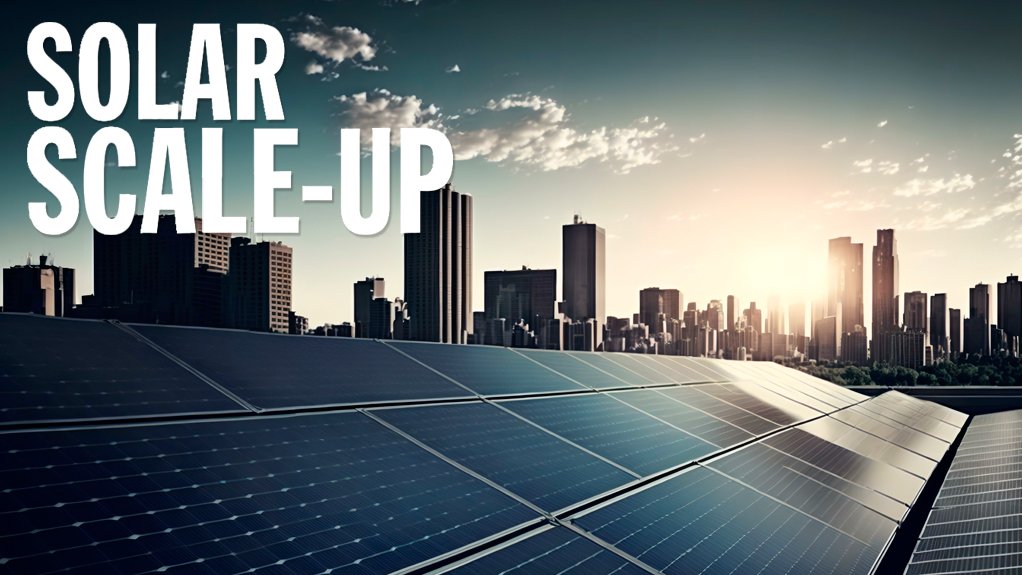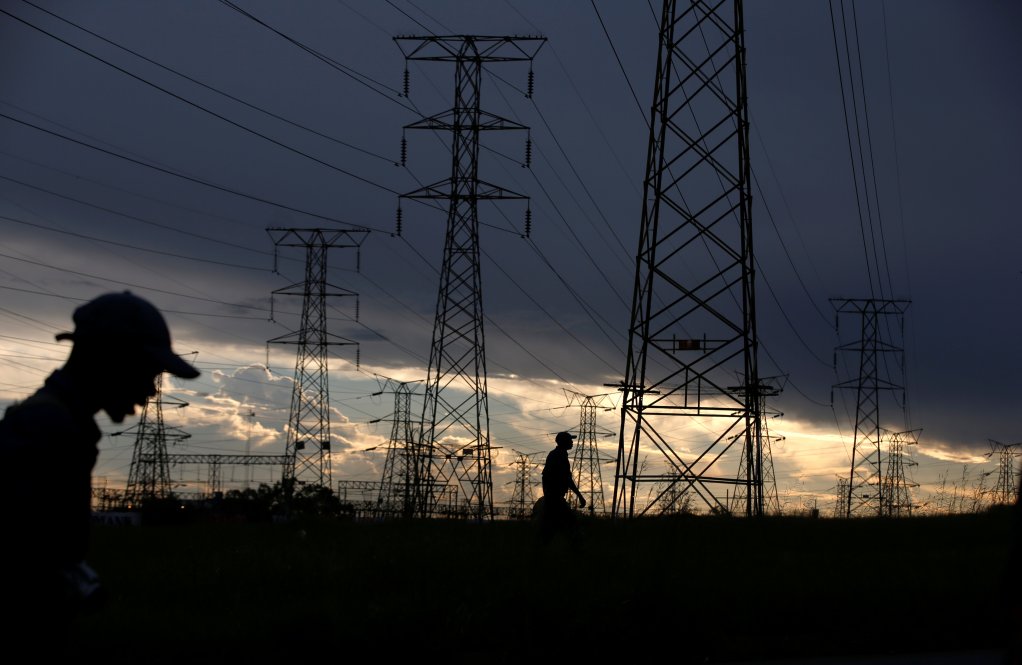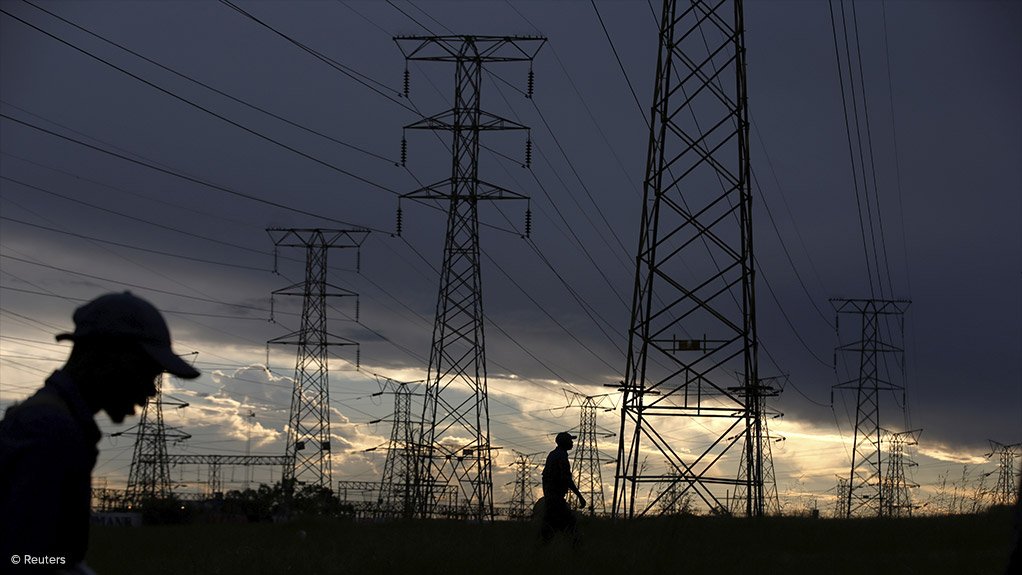Property owners view rapid solar roll-out as key to navigating loadshedding crisis





Sapoa CEO Neil Gopal
Sapoa members have warned that unless loadshedding comes to an end, rentals will come under pressure
Photo by Reuters
UNDER STRAIN Sapoa members have warned that unless loadshedding comes to an end, rentals will come under pressure
Photo by Reuters
As the energy crisis in the country incrementally worsens, the ramifications are considerable for property owners, who are having to resort to various options to limit the impact of prolonged periods of outages, future-proof their assets and ensure business continuity.
However, this is not enough to contain the fallout, and property owners are also calling for efforts to be bolstered, through other solutions, to resolve the energy challenges.
These are the key takeaways from industry organisation the South African Property Owners Association’s (Sapoa’s) Industry Survey for March, titled ‘Impact of Loadshedding on the Commercial Property Industry’.
Sapoa members have warned that unless loadshedding comes to an end, rentals will come under pressure, as tenants will not be able to consistently carry the burden of high diesel costs, which negatively affect property values.
They also pointed out that the cost of doing business was increasing with loadshedding.
Respondents to the survey operate primarily in the commercial office space, which comprised 64.71% of respondents. This is followed by industrial/logistics, shopping centres, residential and hotels, tourism and leisure.
The respondents stated that they had to deal with substantial periods of loadshedding over the past year, with 61.18% estimating that their organisation had been subjected to loadshedding daily in the past year. This was closely followed by 34.12% of respondents who had been subjected to loadshedding a few times a week.
The respondents’ businesses were adversely impacted on by loadshedding, with almost half, at 44.07%, saying loadshedding had a serious impact on their business.
Moreover, 28.81% noted a very serious impact, affecting business vitality and sustainability, closely followed by 25.42% of respondents experiencing a moderate impact. Only 1.69% were unaffected.
In cost terms, 55.36% of respondents estimated that monthly indirect costs incurred because of loadshedding, such as lost labour, productivity and resultant damage to machinery, ranged from R100 000 to R500 000. Moreover, 21.43% estimated this to be between R1-million and R5-million.
The highest impact on service delivery, as a result of loadshedding, was electrical damage to equipment, with 65.38% of respondents being affected.
This was closely followed by excessive capital expenditure on infrastructure to minimise the impact, with 63.46% of respondents experiencing this, while 26.92% of respondents noted an impact in terms of rental reversions.
The outlook for the future is also bleak, as 90.38% of respondents expect loadshedding to worsen.
Call for Action
In the survey, members proffered a myriad of suggestions that they believe would assist in alleviating the current loadshedding situation.
The suggestions included calls for government to appoint more engineers to address the situation, while Sapoa members also want local government to take action, where applicable, and to play a bigger role in terms of short-term solutions.
The need for better government decisions that acknowledge the severity of the situation was emphasised.
“Government must take ownership of the crisis and make a concerted effort to stamp out corruption,” a response to the survey states.
Further, it was averred that government and State-owned utility Eskom should focus on rectifying the underlying problems plaguing the entity, including corruption, crime, cartels, inefficiencies and ageing infrastructure.
Sapoa members would also like to see increased public pressure by local industry bodies on all three spheres of government to expeditiously resolve the power crisis.
From a legislative viewpoint, the complete separation of Eskom into generation, transmission and distribution entities, currently being undertaken, must be expedited, according to the survey.
Other recommendations entailed government’s introducing emergency energy power procurement and the opening up of wheeling frameworks for all municipalities.
The survey results also indicated that some Sapoa members had lost faith in the State’s ability to fulfil its mandate to provide the requisite power for consumers.
This is borne out by calls to privatise Eskom, with government to assume a minor investment role, as well as calls for electricity generation to be taken out of the hands of government and given to the private sector.
It is also proposed that electricity supply be privatised by listing Eskom on the JSE, with government taking over the utility’s legacy debt and retaining a noncontrolling 20% shareholding, while municipalities would procure electricity directly from the private sector.
However, some Sapoa members still see a role for the public sector, with calls for effective management of State-owned entities.
Meanwhile, in terms of alternative energy solutions and investments, diesel generators are currently the most common solution being employed, with 83.05% of respondents indicating that they have these in place.
However, using diesel generators comes at high costs, with 35.71% of respondents paying less than R100 000 and 8.93% paying less than R10-million.
Moreover, standby generators are running at unsustainably high levels and, as a result, need to be replaced at considerable costs, which landlords cannot afford, according to the survey.
Therefore, it is suggested that the South African Revenue Service should allow for a full write-off in the first year to assist landlords with respect to diesel rebates.
Moreover, grid connection and wheeling capacity must be bolstered to accept independent power producer electricity production.
Load sharing is also suggested, where buildings or streets can be interconnected to assist with power generation and use.
This could entail tax rebates on the installation of infrastructure that assists with power generation, local authorities’ financing the installation of power generation at a residential level, and cross housing providing generated power for other households and businesses.
This will assist in reducing large capital outlays, as people and businesses would likely tend to work around the power outages instead of spending funds on alleviating them.
A response to the survey also underscored that sectional-title schemes are struggling with navigating backup solutions, especially as these are often very costly – leading to occupants suffering in the interim.
Tax Breaks
In the survey, some Sapoa members called for increased tax incentives for alternative energy generation.
The suggested incentives include a tax-break for small to large companies that install inverters and panels, as well as an increase in the tariff for feeding power back into the grid.
Meanwhile, law firm Cliffe Dekker Hofmeyr tax and exchange control practice director Jerome Brink writes in a statement that, according to announcements from Finance Minister Enoch Godongwana’s Budget Speech in February, businesses will be able to claim a 125% deduction in the first year for all renewable-energy projects, with no thresholds on generation capacity.
This means that, regardless of the capacity of the renewable-energy assets, one will be able to claim the 125% deduction.
The existing incentive makes a distinction between projects generating less than 1 MW, which could be depreciated by 100% in year one, and those generating more than 1 MW, which could be depreciated over a three-year period, and Godongwana’s February announcement is therefore a move away from this, Brink explains.
This also aligns with the recent increase in the licensing threshold for embedded generation to 100 MW, he adds.
The adjusted incentive for businesses will be available for investments brought into use for the first time between March 1, 2023, and February 28, 2025.
Brink notes that the National Treasury has indicated tax relief amounting to R13-billion in 2023/24 will be provided for taxpayers. Of this amount, R5-billion is to be provided for companies through the expansion of the existing renewable-energy incentive.
Solar Solutions
Some Sapoa members have appealed to government to remove the import taxes on all solar equipment and generators.
Sapoa CEO Neil Gopal informed Engineering News & Mining Weekly earlier this month that the organisation had tabled a proposal to the Presidency and the newly appointed Minister of Electricity to ease the regulatory process and requirements for a rapid solar photovoltaic (PV) programme nationally.
These proposals aim to bolster the uptake of solar capacity at Sapoa members’ properties. Some inroads are being made, with almost half of the respondents, at 49.15%, having solar in place to help combat loadshedding.
Moreover, 75% of respondents stated that they had submitted applications to Eskom for solar approval in the past year, while 85.42% had submitted applications to local authorities.
The average time of approval for the applications is about three to six months from Eskom, and about two to six months from municipalities. The Western Cape and Gauteng fared best in this regard, with the application approval period varying between one and two months on average.
However, projects exceeding 1 MVA were noted to be problematic in terms of approval times in KwaZulu-Natal and Mpumalanga.
Notably, multiple projects that have been installed exceed 1 MW.
Moreover, 48.08% of respondents indicated that they had to install solar systems or panels in support of generators.
Gopal pointed out that most municipalities did not have any tariff structures in place, which is a “massive impediment”.
“The only way to make a significant difference and impact on the energy crisis for our sector at this stage is [the] . . . rapid roll-out of solar panels. This will also assist in reducing demand,” Gopal emphasised.
Sapoa members have also highlighted the need for improved access to soft loans for PV, as well as for uninterrupted power supply solutions and batteries.
Meanwhile, Electricity Minister Kgosientsho Ramokgopa has been quoted as saying that there will be efforts to increase rooftop solar in residential areas.
He indicated that Sapoa has about 100- million square metres of rooftop space available for energy generation. The organisation’s calculations show that using just 50% of this space could secure 9 500 MW in generation capacity.
Ramokgopa highlighted that commercial banks could be used to fund this, rather than using State funding. However, he pointed out that government would need to resolve issues such as feed-in tariffs and regulatory challenges.
Comments
Press Office
Announcements
What's On
Subscribe to improve your user experience...
Option 1 (equivalent of R125 a month):
Receive a weekly copy of Creamer Media's Engineering News & Mining Weekly magazine
(print copy for those in South Africa and e-magazine for those outside of South Africa)
Receive daily email newsletters
Access to full search results
Access archive of magazine back copies
Access to Projects in Progress
Access to ONE Research Report of your choice in PDF format
Option 2 (equivalent of R375 a month):
All benefits from Option 1
PLUS
Access to Creamer Media's Research Channel Africa for ALL Research Reports, in PDF format, on various industrial and mining sectors
including Electricity; Water; Energy Transition; Hydrogen; Roads, Rail and Ports; Coal; Gold; Platinum; Battery Metals; etc.
Already a subscriber?
Forgotten your password?
Receive weekly copy of Creamer Media's Engineering News & Mining Weekly magazine (print copy for those in South Africa and e-magazine for those outside of South Africa)
➕
Recieve daily email newsletters
➕
Access to full search results
➕
Access archive of magazine back copies
➕
Access to Projects in Progress
➕
Access to ONE Research Report of your choice in PDF format
RESEARCH CHANNEL AFRICA
R4500 (equivalent of R375 a month)
SUBSCRIBEAll benefits from Option 1
➕
Access to Creamer Media's Research Channel Africa for ALL Research Reports on various industrial and mining sectors, in PDF format, including on:
Electricity
➕
Water
➕
Energy Transition
➕
Hydrogen
➕
Roads, Rail and Ports
➕
Coal
➕
Gold
➕
Platinum
➕
Battery Metals
➕
etc.
Receive all benefits from Option 1 or Option 2 delivered to numerous people at your company
➕
Multiple User names and Passwords for simultaneous log-ins
➕
Intranet integration access to all in your organisation




















